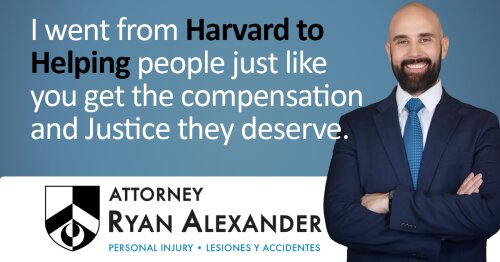Best Constitutional Law Lawyers in Las Vegas
Share your needs with us, get contacted by law firms.
Free. Takes 2 min.
List of the best lawyers in Las Vegas, United States
About Constitutional Law Law in Las Vegas, United States
Constitutional law governs the structure and limits of government power and protects individual rights guaranteed by the United States Constitution and the Nevada Constitution. In Las Vegas, constitutional questions arise in both federal and state courts. Federal constitutional issues - such as freedom of speech, search and seizure, due process, equal protection, and religious liberty - are litigated in federal courts and often interpreted through decisions of the U.S. Supreme Court and the Ninth Circuit Court of Appeals. The Nevada Constitution and state courts can provide parallel or greater protections for residents in areas such as criminal procedure and privacy.
Because Las Vegas is part of Clark County and is the largest population center in Nevada, constitutional issues here frequently involve law enforcement practices, public demonstrations, commercial speech linked to the tourism and gaming industries, and government regulation impacting businesses and residents. Understanding whether a matter is primarily federal, state, or local is important for deciding where to bring a claim and what legal standards will apply.
Why You May Need a Lawyer
Constitutional law claims are often complex and fact-sensitive. A lawyer can help evaluate legal theories, navigate procedural rules, and protect time-sensitive rights. Common situations where people seek constitutional law help include:
- Alleged police misconduct, including unlawful searches, seizures, or use of force.
- Criminal cases raising Fourth Amendment, Fifth Amendment, Sixth Amendment or Eighth Amendment issues, including motions to suppress evidence or challenges to ineffective assistance of counsel.
- Civil rights violations under federal statutes such as Section 1983 - for example, claims against government officials for depriving someone of constitutional rights.
- Free speech and public assembly disputes - including permit denials, restrictions on protests, or government retaliation for speech.
- Religious liberty claims involving disputes with government policies or public institutions.
- Voting rights challenges, election law disputes, and access to ballots or polling places.
- Claims about due process or equal protection involving housing, licensing, employment by a government entity, or public benefits.
- Challenges to local ordinances or administrative actions that allegedly conflict with constitutional guarantees.
In these situations a lawyer can assess whether you have a viable claim, identify the correct defendants and forum, preserve evidence, meet filing deadlines, and represent you in negotiations or court.
Local Laws Overview
Several local and state rules interact with constitutional law in Las Vegas. Key points to keep in mind:
- Nevada Constitution - Nevada law sometimes provides greater protection for rights than the federal Constitution. Courts in Nevada will analyze state constitutional claims separately from federal claims, so asserting state protections can be strategically important.
- Law enforcement and policing - Las Vegas is served by the Las Vegas Metropolitan Police Department and other agencies. Local policing policies, use-of-force rules, body-worn camera policies, and internal complaint procedures affect how constitutional claims, particularly Fourth and Fourteenth Amendment claims, are handled.
- Public forums and permits - Public parks, sidewalks, and some city-owned spaces in Las Vegas are traditional public forums where speech protections are strongest. Permits and time-place-manner regulations are common for demonstrations - these must be content neutral, narrowly tailored, and leave open ample alternative channels for communication to be constitutionally valid.
- Municipal ordinances - Clark County and the City of Las Vegas have ordinances addressing noise, signage, solicitation, and public conduct. Ordinances that appear to restrict expressive activity or discriminate against certain speakers may be challenged on constitutional grounds.
- Courts and procedures - Constitutional claims may be brought in state court, federal district court, or both. Federal court handles federal constitutional claims and federal statutes. Nevada state courts address state constitutional claims and state law remedies. Appeals from the U.S. District Court for the District of Nevada go to the Ninth Circuit.
- Public employment and licensing - Government employers and licensing boards in Nevada must respect constitutional protections like due process and free speech - however, public employees face different standards for speech and discipline depending on whether the speech relates to private matters or matters of public concern.
Frequently Asked Questions
What is the difference between U.S. Constitutional rights and Nevada Constitutional rights?
The U.S. Constitution sets minimum protections that apply nationwide. The Nevada Constitution can provide similar or broader protections for individuals within the state. If a state constitution offers greater protection for a right, Nevada courts may apply that higher standard. A claim can be brought under either or both constitutions depending on the issue.
Where do I file a constitutional claim - state or federal court?
The appropriate court depends on the law involved and the relief sought. Federal courts hear federal constitutional claims and federal statutes. State courts hear state constitutional claims and state law claims. Some plaintiffs file claims in both courts when state and federal rights are implicated. A lawyer can advise on strategic considerations and jurisdictional rules.
How long do I have to bring a civil rights claim in Nevada?
Statutes of limitations vary by claim and cause of action. Civil rights claims under federal law are often governed by state statutes of limitations applied by federal courts - in Nevada many claims use a two or three-year limitation for personal injury-type actions. Criminal appeals and habeas corpus proceedings have different deadlines. Consult a lawyer promptly to preserve your rights.
Can I sue a police officer for unlawful search or use of force?
Yes, but claims against police officers often face hurdles like qualified immunity - a legal doctrine that shields officials from liability unless they violated clearly established statutory or constitutional rights. A lawyer can evaluate facts, gather evidence such as body camera footage, and determine whether a viable claim exists.
What should I do at a protest if I think my First Amendment rights are being violated?
Stay calm and document the situation if you can - note names, badge numbers, and take photos or videos from a safe distance. Follow lawful orders to avoid arrest but ask to speak to legal observers or counsel. If you believe an arrest or action was unlawful, preserve evidence and contact a lawyer experienced in civil rights or First Amendment law.
Can the government restrict speech on the Las Vegas Strip or in casinos?
Private property owners such as casinos have broad authority to set rules for speech on their premises. Public spaces like sidewalks are subject to constitutional protections. The determination depends on whether the location is private or public and the nature of the restriction. Speech that occurs on government property or under a government program may be subject to constitutional limitations.
What remedies are available for constitutional violations?
Possible remedies include monetary damages, injunctive relief to stop unlawful policies or practices, declaratory judgments stating rights, and in criminal contexts, suppression of unlawfully obtained evidence or reversal of convictions. Remedies vary based on the defendant, availability of qualified immunity, and whether the claim is raised in state or federal court.
How do I find out if a local law or ordinance violates my rights?
Analyze the ordinance text, the government interest it seeks to serve, and whether it is narrowly tailored and content neutral when speech is involved. For other rights, consider whether the law deprives you of due process or equal protection. Consulting an attorney or a civil liberties organization can provide a legal assessment tailored to the specific ordinance and facts.
Will filing a complaint with a police department help my constitutional claim?
Filing an internal complaint can create a record and possibly lead to disciplinary action, but it is not a substitute for a civil lawsuit. Administrative complaints are useful for evidence and accountability, but they do not guarantee relief. Speak to an attorney about pursuing parallel administrative and legal remedies.
Can I get free or low-cost legal help in Las Vegas for a constitutional issue?
Yes. There are legal aid organizations, public interest groups, and pro bono programs that handle civil rights and constitutional matters in certain circumstances. Public defenders handle criminal defense for indigent defendants. Eligibility and availability vary, so contact local legal aid providers or the State Bar for referral and intake information.
Additional Resources
Helpful local and state resources include government bodies, courts, and nonprofit organizations that deal with constitutional and civil rights issues. Consider the following types of resources when seeking information or assistance:
- State and federal courts in Nevada for filing procedures and local rules.
- Nevada Attorney General's Office for state legal opinions and enforcement questions.
- Clark County courts and municipal offices for local ordinance and public meeting information.
- Civil liberties and civil rights organizations that offer education and sometimes legal assistance for constitutional matters.
- The State Bar of Nevada for lawyer referral and lawyer discipline information.
- Public defender offices and legal aid societies for representation or referral for eligible individuals.
- Local law libraries and court clerks for access to statutes, case law, and filing forms.
Next Steps
If you believe your constitutional rights have been violated, follow these practical steps:
- Document everything - dates, times, names, badge numbers, witnesses, and any physical evidence. Preserve digital evidence such as photos, videos, messages, and call logs.
- Avoid altering the scene or destroying evidence. Keep copies of paperwork, citations, reports, or medical records.
- Determine deadlines - statutes of limitations, appeal windows, and administrative complaint deadlines can be short. Contact a lawyer quickly to avoid losing rights.
- Contact a lawyer with experience in constitutional and civil rights law. Use the State Bar referral service or local legal aid if cost is a concern. Prepare a concise timeline and provide all relevant documents for the initial meeting.
- Consider administrative remedies where appropriate - internal police complaints, civil rights office complaints, or appeals of licensing decisions may be required or useful.
- If you cannot afford a lawyer, explore public defender options for criminal matters and legal aid or pro bono programs for civil constitutional matters.
- Stay informed but cautious - public comment or social media posts may affect legal strategy or ongoing proceedings. Discuss communications with your attorney.
Taking timely and organized steps improves your chances of a successful outcome. A skilled attorney can guide you through procedural requirements and advocate for remedies that address the harm you experienced.
Lawzana helps you find the best lawyers and law firms in Las Vegas through a curated and pre-screened list of qualified legal professionals. Our platform offers rankings and detailed profiles of attorneys and law firms, allowing you to compare based on practice areas, including Constitutional Law, experience, and client feedback.
Each profile includes a description of the firm's areas of practice, client reviews, team members and partners, year of establishment, spoken languages, office locations, contact information, social media presence, and any published articles or resources. Most firms on our platform speak English and are experienced in both local and international legal matters.
Get a quote from top-rated law firms in Las Vegas, United States — quickly, securely, and without unnecessary hassle.
Disclaimer:
The information provided on this page is for general informational purposes only and does not constitute legal advice. While we strive to ensure the accuracy and relevance of the content, legal information may change over time, and interpretations of the law can vary. You should always consult with a qualified legal professional for advice specific to your situation.
We disclaim all liability for actions taken or not taken based on the content of this page. If you believe any information is incorrect or outdated, please contact us, and we will review and update it where appropriate.









